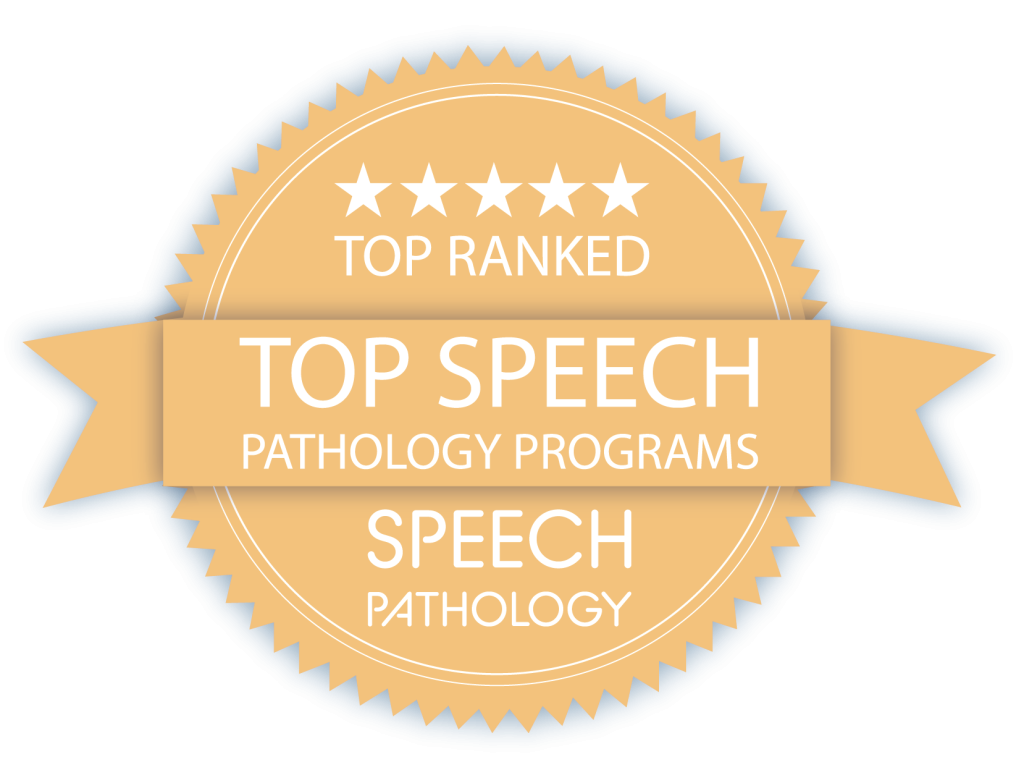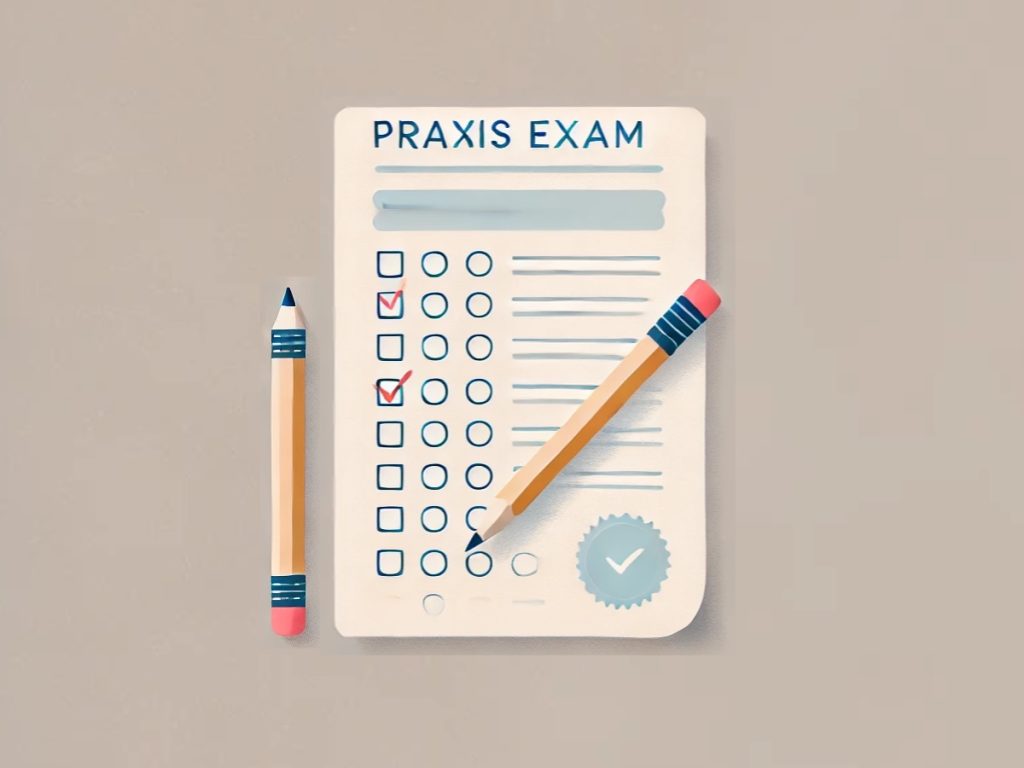Last Updated
April 14, 2025Written By
Benjamin Thompson, M.S., CCC‑SLPIn pursuing your Speech-Language Pathology (SLP) education, New Jersey is a good place to start. New Jersey has much to offer including a number of excellent universities and a strong healthcare and educational system. New Jersey is also home to some good SLP programs in respected universities and has a very good employment rate for speech pathologists, which makes it a good choice for students as well as professionals.
The Bureau of Labor Statistics reports that speech-language pathologists in New Jersey earn higher than the usual income, receiving $102,820 each year, on average, compared to the national median of $89,290. Also, the state is expecting the number of SLP jobs to increase by 17% in the next ten years because of increasing school populations, healthcare facilities, and the senior citizen population. These factors lead to high job security, good salary, and a wide range of job opportunities in all the areas of the state as school speech pathologists, medical speech-language pathologists and in private practice.

Explore the top-rated SLP programs in New Jersey with our curated rankings. Whether you’re just starting or ready for the next step, speechpathology.org showcases the best speech-language pathology schools in New Jersey for aspiring professionals. Discover how programs are selected at speechpathology.org/rankings-methology.

Ewing, NJ - Public 4-Year - tcnj.edu
Campus Based - Visit Website
The College of New Jersey's campus-based Bachelor of Science in Speech-Language Pathology and Audiology focuses on typical and atypical communication, swallowing, and balance disorders. The curriculum integrates academic coursework with clinical observation and research opportunities, emphasizing special education law and interprofessional education. Admission requires a B or higher in specific courses and maintains a 2.3 GPA minimum for retention. This bachelor's program prepares students for graduate study in speech-language pathology or audiology without requiring ACT or SAT entrance exams. It supports diverse populations across the lifespan through cultural competency training and student organization involvement.
Online & Campus Based - Visit Website
The College of New Jersey's hybrid 6-year BS/MS Speech-Language Pathology dual degree program, in partnership with Thomas Jefferson University, provides an accelerated path to certification. This rigorous program requires a 3.3 cumulative GPA and 3.0 science GPA, with a December 1 application deadline and interview process. Students spend four years at TCNJ and two at Jefferson's College of Rehabilitation Sciences, gaining comprehensive clinical preparation. As a bachelor's-level entry program, it does not require ACT or SAT exams for admission. The program emphasizes competitive selection with contingent admission decisions in mid-March.
New Brunswick, NJ - Public 4-Year - newbrunswick.rutgers.edu
Campus Based - Visit Website
Rutgers University-New Brunswick's M.S. in Speech-Language Pathology is a 65-credit, full-time two-year program that prepares students to assess and treat communication disorders in diverse populations through interdisciplinary clinical training. The program emphasizes cultural competence and evidence-based practice, offering hands-on experience via pro bono clinic services and two full-time external placements. With a target class size of 18-25 students annually, it features a competitive admissions process requiring prerequisite coursework, a minimum 3.0 GPA, and 25 hours of guided observation, but no GRE is needed. Graduates are well-prepared for state licensure and clinical fellowships, with an average SLP graduate salary of $80,480.
Wayne, NJ - Public 4-Year - wpunj.edu
Campus Based - Visit Website
The Bachelor of Science in Speech-Language Pathology at William Paterson University provides a 51-credit foundation in communication disorders, covering phonetics, anatomy, physiology, and audiology. This campus-based program emphasizes practical skills and theoretical knowledge, preparing students for graduate studies while meeting prerequisite requirements. It includes a focus on speech and swallowing mechanisms, equipping learners for advanced education in the field. Admission requires ACT or SAT entrance exams.
Campus Based - Visit Website
William Paterson University's Master of Science in Speech-Language Pathology is a 53-credit campus program delivering advanced training in communication disorders. Students engage in extensive clinical practicums and externships, gaining hands-on experience with pediatric and adult populations across diverse settings. The curriculum includes research methods, diagnostic techniques, and specialized electives, preparing graduates for professional certification and clinical roles in schools, healthcare, and private practice. This program requires an entrance exam for admission.
Union, NJ - Public 4-Year - kean.edu
Campus Based - Visit Website
Kean University's Master of Arts in Speech-Language Pathology is a 63-credit, CAA-accredited program that prepares students for high-demand careers with a 21% projected job growth. This two-year campus-based program offers the NeuroAllies: A Neurodiversity Specialization in Autism, focusing on expertise in autism treatment through rigorous clinical training and interprofessional projects. With a 93% on-time completion rate and 95% Praxis exam pass rate, it requires the Praxis entrance exam and provides extensive hands-on experience for roles in schools, hospitals, and private practices.
Campus Based - Visit Website
Kean University's Speech-Language Pathology Doctorate (SLPD) is a 33-credit campus program designed for professionals holding a master's degree, 3.2 GPA, and CCC-SLP certification. Emphasizing leadership and research without a dissertation, it offers evening classes for working individuals and prepares graduates for advanced roles in academia and clinical practice. This hands-on program requires an entrance exam, focusing on enhancing expertise in speech-language pathology through a curriculum that builds on prior clinical experience.
Galloway, NJ - Public 4-Year - stockton.edu
Campus Based - Visit Website
Stockton University's Master of Science in Communication Sciences & Disorders features a Bilingual English-Spanish Specialization (BESS), preparing students for ASHA certification and New Jersey licensure. The 63-credit, full-time program spans two years and includes 400 supervised clinical hours across diverse settings. With a focus on diagnosing and treating communication disorders in all age groups, it emphasizes hands-on experience. No GRE scores are required for admission, and the program has a 3.2 GPA minimum. Accredited by CAA, it targets aspiring speech-language pathologists seeking bilingual expertise.
Newark, NJ - Public 4-Year - newark.rutgers.edu
Campus Based - Visit Website
Rutgers University-Newark's M.S. in Speech-Language Pathology is a 65-credit, two-year full-time campus program that prepares students to serve diverse populations with communication disorders. The program emphasizes cultural competence, evidence-based practices, and interdisciplinary training, with extensive clinical experience through on-campus clinics and two extern placements. Unique bilingual competency options in Spanish and Korean are available, and graduates report an average starting salary of $80,480. No GRE is required for admission, and the program maintains a minimum 3.0 undergraduate GPA requirement.
West Long Branch, NJ - Private 4-year - monmouth.edu
Campus Based - Visit Website
Monmouth University's Master of Science in Education in Speech-Language Pathology is a 60-credit, ASHA-accredited program delivered over six semesters with a summer start. Students complete over 400 clinical practicum hours at the on-campus Center for Speech and Language Disorders under direct supervision. The evidence-based curriculum emphasizes hands-on training and small cohort sizes, preparing graduates for NJ professional licensure and Department of Education endorsement. This program requires an entrance exam for admission, with a February 1 application deadline.
Morristown, NJ - Private 4-year - steu.edu
Online & Campus Based - Visit Website
Saint Elizabeth University's Master of Science in Speech-Language Pathology is a 60-credit, two-year hybrid program that combines online coursework with in-person clinical training. Students complete over 375 direct clinical practice hours through rotations across New Jersey, New York, and Pennsylvania, gaining hands-on experience in diverse healthcare and educational settings. The program prepares graduates for ASHA certification and state licensure, with a pathway to CAA accreditation. It features experienced bilingual faculty and emphasizes critical thinking, research, and community service. As a master's level program, it requires an entrance exam.
A bachelor’s degree in Speech-Language Pathology or Communication Sciences and Disorders is generally used for preparation for higher studies. Admissions are based on completion of high school, good academic performance, results of the SAT or ACT tests, and sometimes on an essay or letters of recommendation. These undergraduate programs expose students to basic ideas in communication sciences. With these basic concepts, graduates with bachelor’s degrees are able to work in support positions related to the field, for instance, as a rehabilitation or therapy aide in schools and healthcare facilities, or in administrative roles in clinical practices.
To obtain a license to practice as an SLP in New Jersey, a master’s degree in Speech Pathology is necessary. There are several universities which offer accredited master’s programs that include high quality clinical practice in addition to the academic learning required for licensure and certification by ASHA. It is usually necessary for applicants to a master’s program to have a relevant bachelor’s degree, to have a cumulative GPA of at least 3.0, and to demonstrate clinical interest or experience in essays or interviews.
The masters prepared graduates can practice on their own and lead a fulfilling life working in various settings such as public schools, private clinics, hospitals, and rehabilitation centers within the state. Since the state has a good employment rate and higher than normal pay, getting a master’s degree for the future is often viewed as a good investment.
If one aspires to practice as a speech pathologist, then a master’s degree is vital. If you are still deciding on what career path you want to take, a bachelor’s degree can be a good way to get started without incurring too much cost. If you decide to continue in the SLP field, you will have a solid foundation from your undergraduate studies and will be well-prepared to excel in their profession and make a positive impact in the lives of individuals with communication needs in New Jersey.
Doctoral programs are typically divided into two types: the clinically focused Doctor of Speech-Language Pathology (SLPD) and the research-heavy PhD. For speech-language pathologists, whether interested in advanced practice, leadership, research, or academia, the pursuit of a doctorate can greatly improve career opportunities in New Jersey.
Kean University has the only SLPD program in New Jersey. Doctorate students who enroll in the SLPD can expect to improve their clinical skills and leadership. This program is usually offered to individuals who have some clinical experience and hold a master’s degree from an accredited program and who have received their ASHA certification (CCC-SLP). The SLPD prepares clinicians for more complex clinical practice, administrative management, field specialties (autism, neurological disorders), or higher-level positions within the healthcare or educational systems. Since Kean University is a public university, the SLPD program can be relatively cheaper than other similar programs available at private universities. Graduates of this speech pathology program tend to enjoy better career outcomes and higher salaries because of the additional level of skill and certification they hold.
For prospective PhD students, New Jersey may not be home to a dedicated communication sciences doctoral program, but there are related options such as Rutgers University’s PhD in Rehabilitation Science or Seton Hall University’s PhD in Health Sciences with concentration in communication sciences. There are also some online PhD options if that is more appealing than an interdisciplinary degree. Online SLP degrees may provide more flexibility for the working professional.
Admission to both in-person and online PhD programs have similar admission requirements. They require high GPAs, prior research experience, recommendation letters, GRE scores, and possible interview or written research proposals. Graduates from these speech-language pathology degrees typically pursue jobs as university professors, research scientists in hospitals or industries, or administrators who shape health policies or clinical education.
Both of these pathways allow graduates to expect higher earnings, more professional recognition, and career progression. The SLPD is more closely associated with clinical management and field-focused practice, while the PhD prepares for academic, research, or health policy positions. Due to the proximity to New Jersey to a number of academic and healthcare institutions, either SLP doctoral degree opens up more employment possibilities in the state and the larger area.
In New Jersey, the Audiology and Speech-Language Pathology Advisory Committee is responsible for the issuance of New licenses to practice as a speech-language pathologist. Licensing guarantees that every SLP has met certain minimum educational and clinical training standards so that clients across the state continue to receive quality care.
In New Jersey, licensure is usually achieved with a master’s or doctoral degree from an ASHA accredited program, a supervised clinical fellowship of at least 9 months in professional experience, and a pass on the Praxis examination in Speech Pathology. New licensees must also do an online orientation to New Jersey’s laws and regulations, called jurisprudence orientation, which is required of all new licensees.
After being licensed, SLPs maintain their credentials by engaging in professional development activities. Speech pathologists in New Jersey must complete at least 20 contact hours of continuing education during each 2 year licensing period. This keeps professionals up to date with the latest developments in treatment techniques and are therefore in a position to give quality services.
It is also important to note that in New Jersey, speech language pathology assistants (SLPAs) are not recognized or licensed by the state. SLPAs are not allowed by New Jersey law and the state does not license them. At this time, New Jersey law does not allow unlicensed individuals to practice as a speech pathologists or for SLPs to delegate care to them. For those looking for support roles, options in the state are currently limited to things like classroom aides or administrative staff rather than direct therapeutic roles.
In New Jersey, most accredited Speech-Language Pathology programs are intended to take about two years of full time graduate study. Most universities, including Seton Hall University and Montclair State University, have five to six semesters Master’s programs including summers to ensure that students are able to finish their courses and clinical practices in a timely manner without compromising on the quality. For example, Seton Hall has a well-defined program that is offered in five consecutive semesters; two years, with an accelerated and well defined structure.
For those considering undergraduate education, bachelor’s degrees are four years but some universities including Seton Hall have combined bachelor and master’s degree programs. These dual degree programs enable students to receive both the degrees over the course of approximately six years, thus avoiding the need to apply for graduate school again, getting the fastest SLP degree and saving money in the process.
Doctoral programs, including the clinical doctorate (SLPD) offered by Kean University, are usually part-time over two to three years following a master’s degree. Although these programs are not actually intended to be accelerated, they are designed for practicing clinicians and thus offer a high degree of flexibility that allows students to continue working while studying to achieve advanced credentials.
| School Name | Highlights | Retention & Grad Rates |
|---|---|---|
| The College of New Jersey |
|
|
| Kean University |
|
|
| Rutgers University |
|
|
For the purpose of keeping the costs low for SLP education, New Jersey’s public universities are the most economical speech pathology degrees. Many master’s programs at Montclair State University, William Paterson University, Stockton University, Rutgers University and Kean University are quite cheap, especially for New Jersey residents. On average, tuition for these public programs is usually between $8,000 and $9,000 per semester for New Jersey residents, which is much cheaper than similar programs at private universities within the state.
However, private universities such as Seton Hall University or Monmouth University, though offering great education and clinical practice, are expensive – often much more expensive than the public universities. Nonetheless, they provide financial aid, scholarships, assistantships, or any other form of tuition assistance that can help lessen the price difference. When it comes to bachelor’s degree programs; William Paterson, Kean University and Caldwell University being public universities offer very affordable education compared to their private peers.
In the area of advanced degrees for instance the clinical doctorate (SLPD), Kean University is a public and fairly priced option. This gives students a chance to obtain an advanced clinical speech pathology license without having to pay the higher costs that are normally associated with doctorate level education at private universities.
Hence, attending public universities for undergraduate or graduate studies in the field of SLP in New Jersey is a financially smart move as well as providing quality education, clinical practice and savings.
| School Name | Highlights | Annual Estimated Tuition & Fees |
|---|---|---|
| Kean University |
|
|
| William Paterson University of New Jersey |
|
|
| Stockton University |
|
|

If you are interested in pursuing a career in SLP and have been researching licensing requirements or are simply interested in learning more about SLP

Dyslexia, a common learning difference affecting reading, writing, and language processing, can present unique challenges for students transitioning from high school to college. Fortunately, a

If you are pursuing the position of a speech-language pathologist, then you may have heard of the Praxis exam from your professors, classmates, or even

If you have ever been researching speech-language pathology careers and come across the words ‘speech pathologist’ and ‘speech therapist’, you might wonder if they are